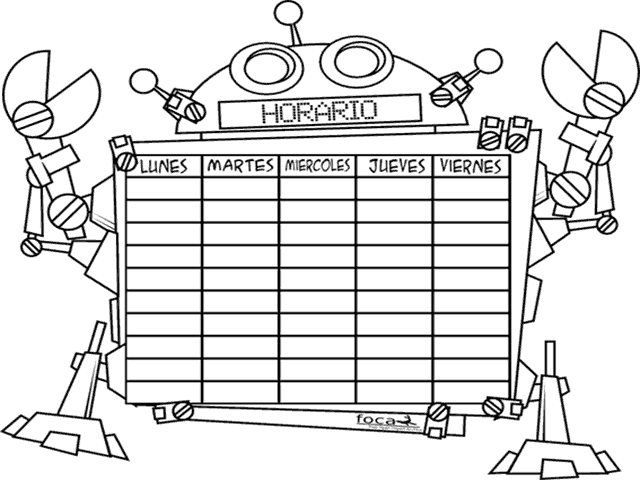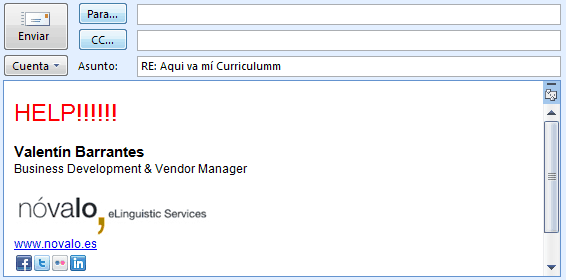
Translators and PMs: lights, camera, action!

By Cristina Plaza, Project Manager in Nóvalo
A question for translators: how often have you complained, even alone in your office, about those project managers who haven’t sent you the correct material? Or maybe, they have “begged” you to squeeze in a translation, they haven’t sent the last instructions or they never answer your e-mails. Damn PMs!
A question for PMs: And you? Do you remember how often you have grumbled about translators who deliver late, change the file formats or send the queries along with the delivery? Damn translators!
Those of you who have worked as a translator and a PM will know better than anyone else how difficult it is to satisfy translators’ and clients’ needs. The PMs spend the whole day juggling with the projects they manage. Their task is not only to receive clients’ requests, look for resources and assign translations. They may have to review tasks, assume small translations, manage queries, control projects and perform administrative tasks, among others.
The same applies to translators. As a freelance, we could think it is much easier to manage one’s time. Sometimes we assume new jobs, but the previous project is more difficult than expected and our planning changes, a client updates instructions when the project is almost finished, the computer crashes or we combine our work as a translator with different activities.
They are two sides of the same coin with very different points of view. One thing is clear: we are all essential to carry out the translation process appropriately. For this reason, to avoid stress and improve collaboration, in this post I’ll comment some of the most common mistakes as PMs and translators in order to avoid them, for the good of all.
Translators’ common mistakes
– Not answering e-mails: Sometimes translators receive e-mails asking, for example, for their availability to assume a translation. It can occur we are really busy and do not have time to take that job. For that reason, we decide not to answer that e-mail. In those cases the lack of answer is understood as a negative answer. This is really common when massive e-mails asking for availability are sent to a group of translators. As we all know, this is not the best way to proceed and it should be avoided. However due to tight deadlines, sometimes PMs only have that option or the phone. For this reason a simple “I’m not available” is most appreciated. In that way the project manager gets an idea about the freelance team availability. This applies to all messages requiring confirmation.
– Asking about every single click needed to run a CAT tool: Due to our background in humanities, translators don’t like computers too much. But the day comes when we start working as a professional translator and everything changes. Although initially it takes a long time to get used to a tool, we have to avoid constant questions to project managers about the way a CAT tool operates. All these tools include an online help and we will find a lot of tutorials on the Internet. For that reason, try to solve simple questions on your own. PMs will appreciate your efficiency in that regard.
– Too many delivery notes and queries: Something similar to the previous point applies to queries and delivery notes. The translator has to take decisions and thus do proper research. When delivering, we do not have to justify all the decisions we have taken, unless they are important and we think the PM should be aware of them. Furthermore, we have to avoid open queries so that the reviewer takes the final decision and queries like “Term not found. Please confirm translation”.
– Delayed deliveries: As we all know, time is money. If, for any reason, our delivery is delayed, please inform your PM in advance. Occasionally they may have some flexibility and sometimes they may not, so we cannot assume we always have some extra hours.
PMs’ common mistakes
– Profitability at the expense of quality: The relationship between rates and quality can be a very controversial topic. The PM has to assess the cost-benefit ratio always taking into account the tasks to be accomplished to have a final quality product. Sometimes it is the client who restricts the budget and, consequently, it is difficult to have the final quality expected for a job. For example, they do not want to pay the review of 100% matches. Nevertheless, if the budget is appropriate for the job, no tasks must be omitted in order to achieve that final quality. We must always look for other ways of getting benefits from projects.
– Not reading the project instructions: Some projects we receive have very complex instructions which go beyond the translation and editing tasks (use of uncommon tools, references and instructions for the process, platforms for queries, etc). Sometimes PMs do not have enough time to read all of them and they copy and paste the instructions for the translators. As PM we are expected to know what is required in order to control that our translation meets final requirements. Remember we are the final responsible for this job.
– Setting tight deadlines even if there is enough time: Something difficult to understand are those PMs who send you a translation today but wanted it back yesterday. Sometimes final clients impose tight deadlines because they do not know the total amount of words a translator can assume every day. The PM must educate the client. However, it can occur that we receive translations in advance, but we want them back as soon as possible or for different reasons we cannot organize them until the deadline. In those cases, we must always take into account the time needed to accomplish that translation.
– Constantly asking for discounts: Back to rates. When translators are included in the freelance database of a translation company, they usually agree their rates with the company managers. These rates can change depending on the type of task to be done and provided both parties agree. For this reason, PMs should try to avoid constantly asking for discounts. What would the baker think if you say “today I won’t pay you this baguette, but I give you my word that I’ll come back every day to buy one”?
These are only some examples we have found in our everyday work as translators and PMs. There is an unquestionable fact: in a context where emotional intelligence, collaboration and empathy predominate, everything will reach satisfactory results. A good relationship between project managers and translators is essential to accomplish a project and value our work properly.
What would you add to this list?



Sin respuestas a "Translators and PMs: lights, camera, action!"